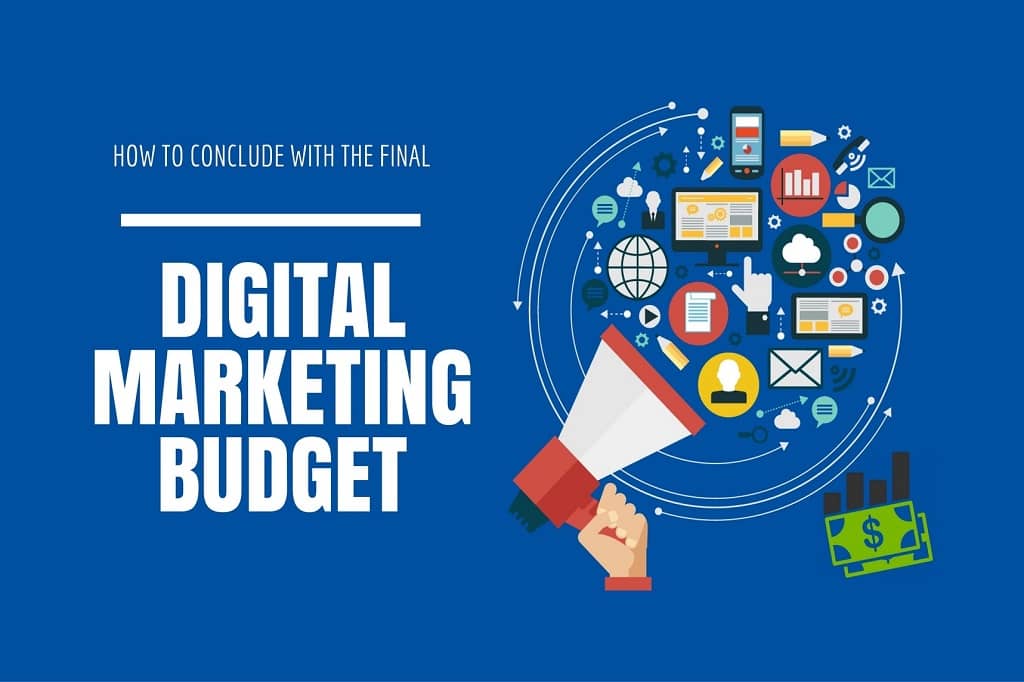Digital Marketing Budget for 2018
According to a recent research, it is estimated that one should spend approximately 7 – 9 % at an average of their gross revenue on marketing. The previous year saw an allocation of 25% spending on digital marketing from this quota and in 2018, the budget is going to soar high at 35%.
Digital Marketing Goals
Before you just overdo your spending on various niches of digital marketing like SEO, Content Marketing, E- mail marketing, Marketing Automation, Paid Search Marketing (AdWords), Social Media Marketing, Online PR, Website Personalization, Display Advertising and other, you must know prioritizing which forte will benefit your business at a lion’s share.
In general, based on the business type, your digital marketing intentions could be:
- Driving direct revenue – increasing sales, customer conversion, decreasing customer churn ration etc…
- Customer Acquisition
- Brand Protection, or
- Building Loyalists – through promotion of engaging contents, incentivizing customers, increasing social media engagement etc.
The following should be your digital marketing goals for 2018:
- Converting leads to customers rather than mere lead & demand generation.
- Investing and digital marketing spending on online videos at the rate of 11% to acquire faster leads.
- Giving priorities to social media platforms like Facebook and Instagram instead of slow growing Twitter and Pininterest.
- Stressing upon new lead generation offers through modes such as gated resources, webinars, eBooks, checklists, calculators and more.
- Prioritizing the concept of ‘topic Clusters’ to get better indexing and to help you rank higher in search engine results. Fixing links and stressing upon quality content should be the top agendas of your SEO Campaign in 2018.
- Develop an omnichannel marketing strategy through Local Search & SEO, Persona Driven website, Pay per Click Advertising, Social Media Advertising, Programmatic Display Advertising, Personalized e- mail marketing and Meta search advertising.
- Securing your site (with https) to build more confidence.
- Using content to power Voice Search.
- Fast loading website and mobile compatibility.
- Analysing your ROI and use of Marketing Analytics for decision making.

Allocation of Funds
Use Google Analytics or more primitively, Social Media Analytics, to determine your range of allocation of funds. These monitoring tools should give answers related to customers like and dislikes and how should you plan your business goals and customer service strategy in the future. It will also give your business an exposure to a social media crisis and help you rectify business hazards at the earliest to ensure brand protection.
Take help of professionals and SEO services Melbourne to allocate optimum spending on each stage of your Digital Marketing plan:
- Awareness: AMP, Local, In Market Display, Remarketing Ads, Events, Blogs, Boosted Social Media, Emails.
- Consideration: Snippets, UNAP, FAQs, Reviews, Meta Search, Video, Social.
- Engagement: Community Engagement, Email Signups, Chat Messages, Local Content, Newsletters.
- Conversion: CRO, Remarketing, Branded Search, Dynamic Content, Revenue and Recovery.
Allocation of funds will vary according to different industry and business types. For example, if you have a hotel business, you must spend more on brand awareness, on the other hand, if you own up a e-commerce chain (driving direct revenue), it’s important to spend more on the conversions.
Overall, it is quite clear that investing in digital marketing is a must in 2018 to stand ahead of your competitors. However, while stepping into the field, you must focus on spending efficiently or take help of professionals to get best returns of your investment.

